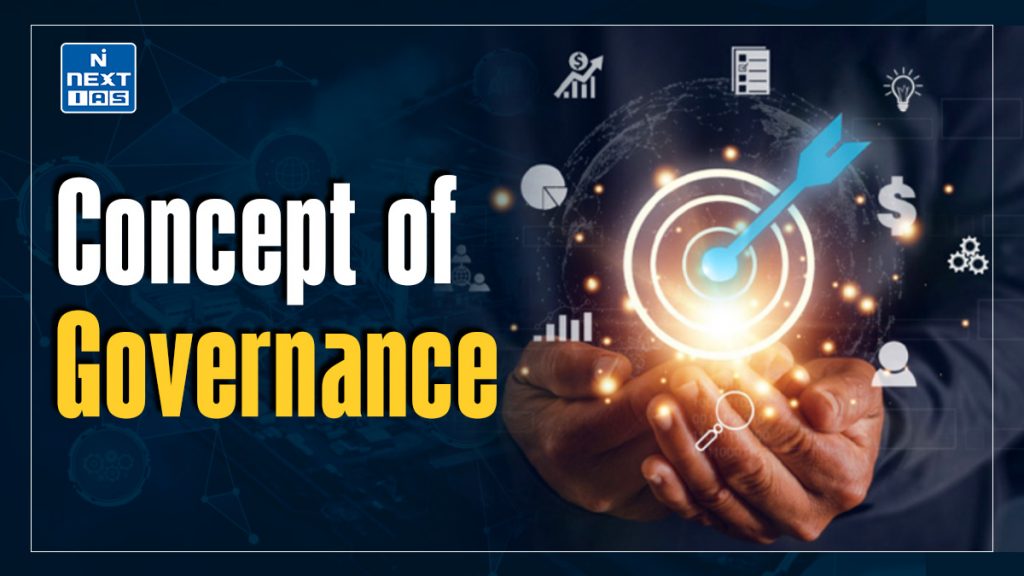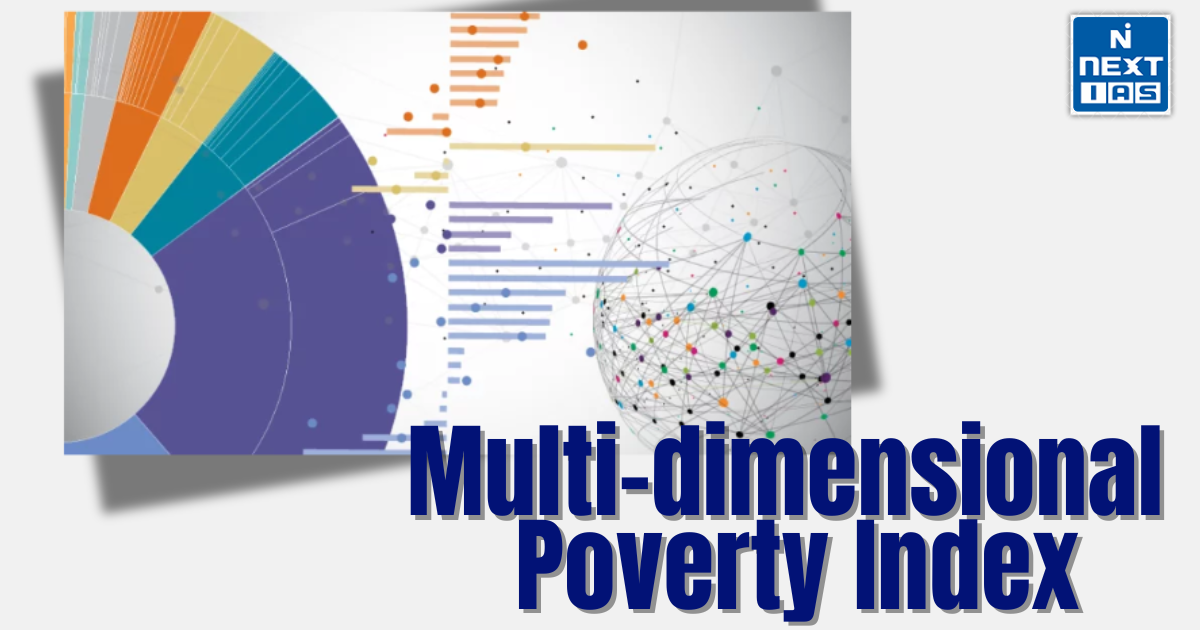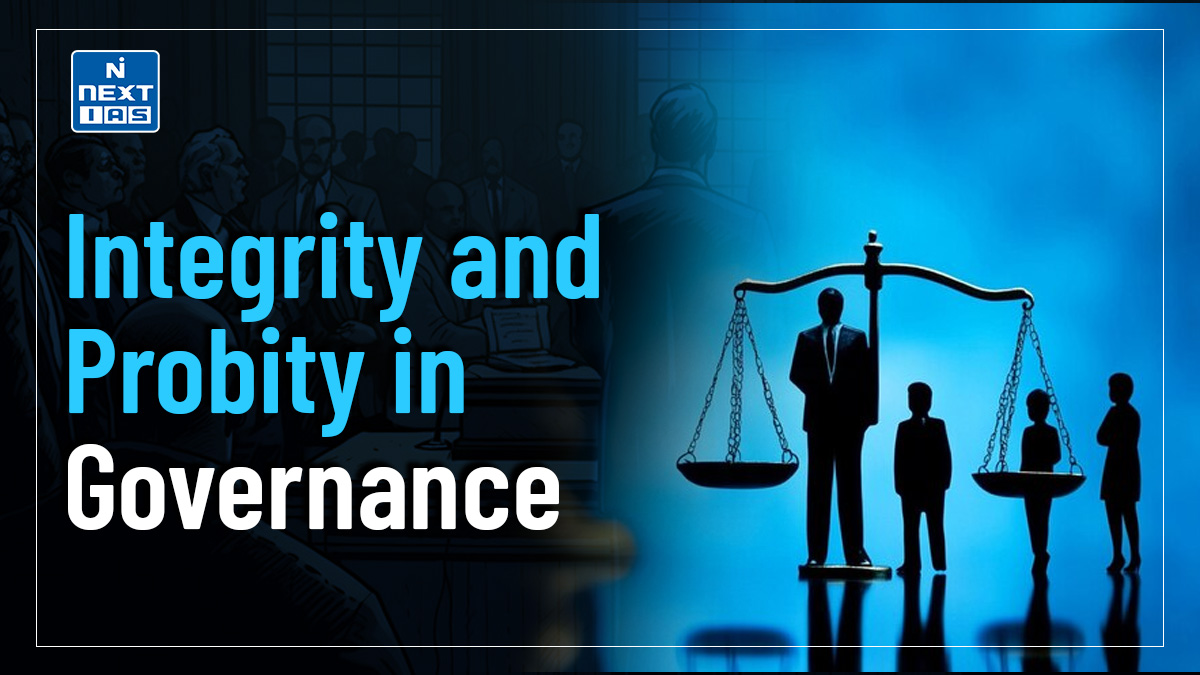
The concept of governance refers to the process of decision-making and the implementation of those decisions by the government and other stakeholders to achieve societal goals. It is significant as it determines the efficiency, accountability, and inclusiveness of administration, shaping a society’s overall development and welfare. This article aims to study in detail the evolution, functions, dimensions, and principles of governance, distinguishing it from government while exploring its applications across various contexts.
About Governance in India
- As human settlements evolved into organized societies, the need for order, administration, and division of responsibilities became imperative.
- Rules and regulations were created to maintain harmony, ensure smooth functioning, and structure societal interactions.
- With the advent of civilization, various institutions, including religion, philosophy, and political structures, shaped societal norms and governance.
- Over time, these institutions transformed to reflect changing socio-political realities.
- For instance, early political structures were often informal and unorganised, led by chiefs considered “first among equals.”
- As societies matured, these leaders became kings and emperors, assuming centralized authority and responsibility.
- This evolution paralleled advancements in economic structures, philosophical ideologies, and religious thought, which together laid the foundation for modern governance concepts such as the state and citizenship and political ideologies like capitalism and communism.
- Governments emerged as entities that formalized rules and laws, enabling structured administration and defining state-citizen relationships. Simply put, the government is a group of representatives that administers a country and exercises the state’s power.
Functions of Government
Governments across the globe perform a myriad of functions, broadly classified as follows:
- Political Functions: Lawmaking, execution, and adjudication.
- Structuring political order and maintaining institutional integrity.
- Social Functions: Promoting social change and ensuring welfare.
- Addressing societal disparities and fostering inclusion.
- Economic Functions: Driving economic development and growth.
- Implementing fiscal policies and ensuring equitable resource distribution.
- Security Functions: Safeguarding national borders.
- Maintaining internal security, law, and order.
- Technical Functions: Encouraging technological innovation and reforms.
- Enhancing administrative efficiency through modernization.
- Cultural Functions: Preserving cultural heritage and promoting diversity.
- Supporting arts, education, and community values.
Meaning of Governance
- Governance refers to the implementation aspect of government, encompassing the rules, processes, and actions undertaken to fulfill governmental objectives.
- It is essentially the operational framework through which governments execute policies, laws, and developmental initiatives.
- While the government represents the institutional entity, governance is the dynamic, action-oriented aspect of administration.
- It involves various organs, stakeholders, and processes, ensuring that the government’s goals translate into tangible outcomes for citizens.
Distinction Between Government and Governance
| Aspect | Government | Governance |
| Nature | Institution or Entity | Process or Value Phenomenon |
| Authority | Exercise of Authority | Problem-Solving and Decision-Making |
| Focus | Quantitative | Qualitative |
| Structure | Top-down, Hierarchical | Decentralised, Flexible, Flatter |
| Representation | Pyramid-like Structure | Amoeba-like Structure |
Simply put, governance is what governments do. It reflects the active process of managing resources, addressing issues, and implementing policies, whether on a national, corporate, or community level.
Governance in Various Contexts
Governance extends beyond the geopolitical domain and applies to multiple contexts:
- Corporate Governance: Managing business entities responsibly and ethically.
- Ensuring accountability, transparency, and stakeholder value.
- International Governance: Facilitating cooperation among nations through organizations like the UN, WTO, and WHO.
- Addressing global issues such as climate change, security, and economic disparity.
- National Governance: Managing a nation’s resources and development goals.
- Ensuring equitable policy implementation and citizen participation.
- Local Governance: Decentralized administration of towns, villages, and cities.
- Strengthening grassroots democracy and community participation.
Dimensions of Good Governance
Good governance is characterised by its adherence to principles that prioritise the welfare of citizens and sustainable development. Key dimensions include:
- Transparency: Open communication of government actions and decisions.
- Accountability: Responsibility of public officials for their actions and decisions.
- Participation: Involvement of citizens in decision-making processes.
- Rule of Law: Ensuring legal frameworks are applied equitably.
- Effectiveness and Efficiency: Optimal utilization of resources to achieve desired outcomes.
- Equity and Inclusiveness: Addressing the needs of vulnerable groups and ensuring fairness.
- Sustainability: Balancing economic, social, and environmental priorities.
Conclusion
Governance, as the functional arm of government, plays a critical role in shaping citizens’ quality of life. By focusing on principles of good governance and fostering inclusive, transparent, and participative systems, societies can achieve sustainable growth and harmony. Whether in the context of nations, corporations, or communities, governance remains a central pillar of human progress and societal well-being.
Frequently Asked Questions (FAQs)
What is the concept of governance?
Governance refers to the processes, systems, and practices through which decisions are made, authority is exercised, and resources are managed to achieve the collective goals of a society, organization, or government. It encompasses principles such as accountability, transparency, participation, and rule of law.
What is ethical governance?
Ethical governance is the practice of decision-making and administration based on principles of integrity, fairness, accountability, and respect for human rights, ensuring that public policies and actions align with moral and ethical standards.






